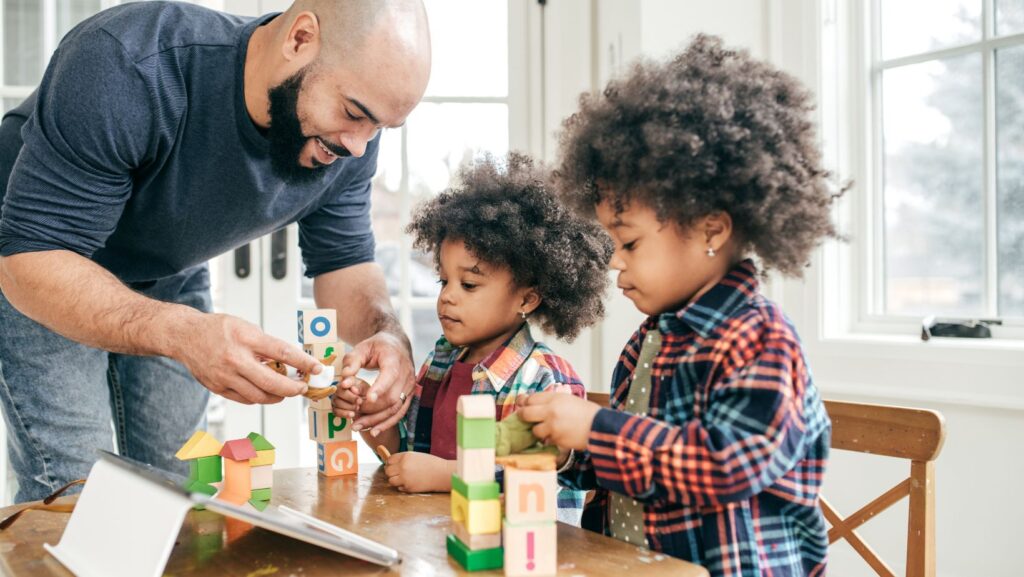Early learning plays a pivotal role in shaping a child’s future, setting the foundation for academic achievement, social skills, and emotional well-being. Research has consistently shown that the experiences children have in their early years are crucial for brain development, influencing everything from language acquisition to problem-solving abilities. A nurturing, stimulating, and supportive early learning environment can make a world of difference in a child’s life.
In this article, we’ll explore why early learning is so important, how it forms the building blocks of future success, and how parents, educators, and caregivers can support young children in reaching their full potential.
The Importance of Early Learning
The early years of a child’s life are often referred to as the “critical window” for learning and development. During this time, the brain is highly adaptable, making rapid connections that will influence a child’s future cognitive, social, and emotional abilities. Quality early education, such as that provided by services like childcare Kogarah Bay, ensures children are exposed to enriching experiences that support their growth and prepare them for lifelong learning.
When children engage in early learning activities, they develop essential skills such as communication, problem-solving, and cooperation. These skills are not only critical for success in school but also in everyday life. By nurturing children’s curiosity and encouraging exploration, early education providers help lay the groundwork for confident, capable learners.
How Early Learning Shapes Cognitive Development
Cognitive development refers to how a child learns to think, explore, and figure things out. It is about the way their brain processes information, allowing them to understand the world around them. Early learning plays a vital role in promoting cognitive development by providing children with opportunities to engage in activities that stimulate their thinking.
- Language and literacy skills: One of the most important aspects of early learning is developing language and literacy skills. Talking, reading, and singing to children from an early age encourages vocabulary growth and helps them understand language patterns. Storytime, rhymes, and interactive conversations in early learning environments are not just fun—they’re building the foundation for future reading and communication skills.
- Problem-solving and critical thinking: Early learning environments encourage problem-solving through play-based activities. Whether it’s figuring out how to stack blocks without them toppling over or solving a simple puzzle, these tasks challenge children’s brains and foster critical thinking skills. Learning through trial and error helps children understand cause-and-effect relationships, an important cognitive skill.
- Mathematical understanding: Early exposure to numbers, shapes, and spatial reasoning helps children develop mathematical skills long before formal schooling begins. Simple activities like counting, sorting objects by color or size, and recognizing patterns all contribute to a child’s early numeracy development.
Social and Emotional Development
Along with cognitive growth, early learning environments also promote social and emotional development. These are crucial areas that help children build relationships, manage emotions, and navigate social situations as they grow.

- Building relationships: In early learning settings, children learn to interact with peers and adults outside of their families. These interactions teach them how to form friendships, share, and collaborate with others. Learning to work with others is an essential skill that contributes to success later in school and in life.
- Emotional regulation: Young children are still developing the ability to understand and manage their emotions. Early learning environments provide them with the tools to recognize their feelings and express them in healthy ways. With the support of caregivers and educators, children learn to handle frustration, anger, and sadness, which helps them develop emotional resilience.
- Self-confidence: As children engage in new activities and face challenges, they develop a sense of accomplishment when they succeed. This builds their self-confidence and encourages them to take on new challenges. A supportive early learning environment encourages children to believe in their abilities and fosters a positive self-image.
The Role of Play in Early Learning
Play is often referred to as “the work of children” because it is through play that they learn about the world around them. Play-based learning is central to early education, as it allows children to explore their creativity, practice social interactions, and develop problem-solving skills in a low-pressure, enjoyable setting.
- Creative expression: Play encourages creativity and imagination. Whether it’s drawing, building with blocks, or engaging in pretend play, children use their imagination to create stories, solve problems, and explore different roles. This type of play helps develop cognitive flexibility, a skill that is important for creative thinking and adaptability.
- Physical development: Gross and fine motor skills are also developed through play. Activities like running, jumping, drawing, and manipulating small objects help strengthen children’s muscles and improve their coordination. These physical skills are essential not only for play but also for more structured learning tasks like writing and participating in sports.
- Social interaction through play: Cooperative play allows children to practice social skills like sharing, taking turns, and resolving conflicts. These interactions help children learn how to negotiate, communicate, and work with others, all of which are important life skills.
Parental Involvement in Early Learning
While early learning centers and educators play a crucial role in a child’s development, parental involvement is just as important. Parents are a child’s first teachers, and the learning that happens at home complements what takes place in a formal early learning environment.
- Reading together: One of the most impactful ways parents can support early learning is by reading to their children regularly. Reading not only enhances language skills but also strengthens the parent-child bond and fosters a love of learning. Make reading a daily habit, choosing books that are age-appropriate and engaging for your child.
- Encouraging exploration: Provide opportunities for children to explore their surroundings. Whether it’s taking a walk in the park, visiting a museum, or simply allowing them to experiment with different materials at home, encouraging curiosity will help children develop a natural love of learning.

- Positive reinforcement: Children thrive on encouragement and positive feedback. Celebrate their successes, no matter how small, and offer support when they face challenges. Acknowledging their efforts will build their confidence and motivate them to keep learning.
Early Learning as a Foundation for Lifelong Success
The benefits of early learning extend far beyond the preschool years. Children who have access to high-quality early education are more likely to succeed academically, develop strong social skills, and experience better emotional well-being later in life. Early learning creates the foundation for critical thinking, problem-solving, and the ability to work well with others—skills that are essential in both personal and professional settings.
- Academic readiness: Early learning provides children with the skills they need to thrive in school. Children who attend quality early learning programs often enter school with advanced literacy, numeracy, and social skills, giving them a head start in their academic journey.
- Long-term emotional benefits: A strong emotional foundation built in early childhood can lead to greater emotional stability and resilience in adulthood. Children who are taught to manage their emotions and develop strong relationships are better equipped to handle life’s challenges.
- Social and economic outcomes: Studies have shown that children who receive quality early education are more likely to graduate from high school, pursue higher education, and experience career success. Investing in early learning is beneficial not only for the child but also for society as a whole.
Final Thoughts on Early Learning
Early learning truly is the building block of future success. By providing children with enriching experiences, nurturing their natural curiosity, and supporting their social, emotional, and cognitive development, we give them the tools they need to thrive throughout their lives. Whether through the efforts of dedicated parents or through structured early education programs, every positive experience contributes to a child’s journey of growth and learning.
By recognizing the importance of early education and taking an active role in fostering a child’s development, we help shape confident, capable, and curious individuals who are ready to take on the challenges of the future.



